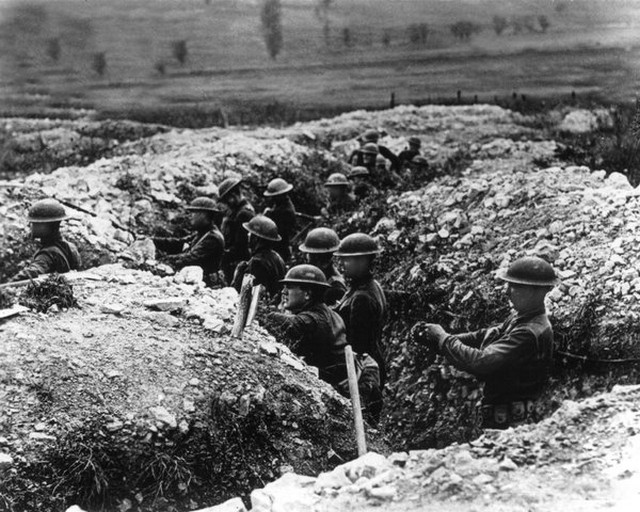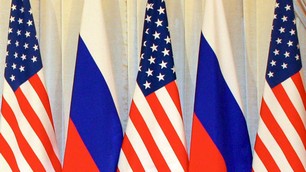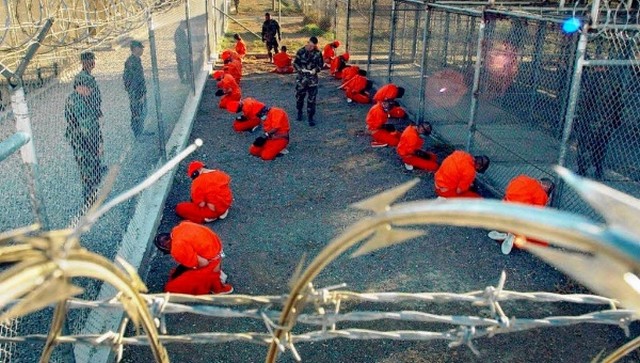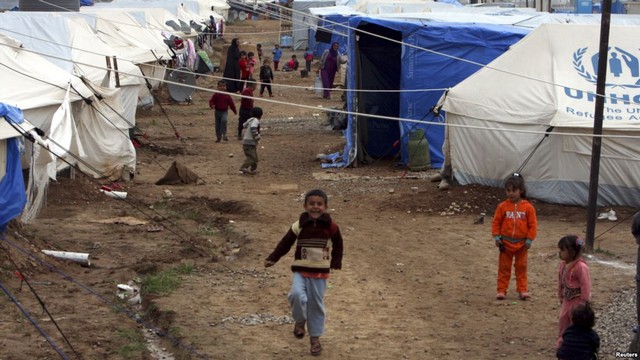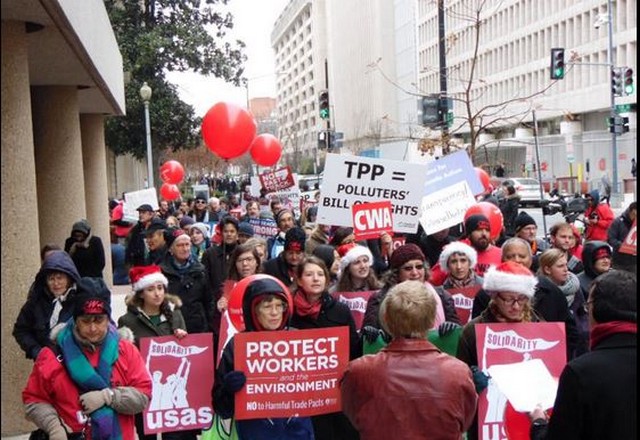By Jean Bricmont
There at least two things that are easier to start than to end: a love affair and a war. No participant in WWI expected it to last as long as it it did or to have the consequences that it had. All the empires that participated in the war were destroyed, including eventually the British and French ones.
Not only that, but one war leads to another. The British philosopher and logician Bertrand Russell remarked that the desire of the European monarchs to crush the French Revolution led to Napoleon; the Napoleonic wars produced German nationalism that itself led to Bismarck, the French defeat at Sedan and the annexation of Alsace-Lorraine. That in turn fueled French revanchism that gave rise, after World War I, to the Versailles Treaty, whose inequities gave a strong boost to Nazism and Hitler. Russell ended the story there, but it continues. Hitler’s defeat gave rise to the Cold War and the creation of Israel. The Western “victory” in the Cold War led to the current desire to crush Russia once and for all. As for Israel, its creation produced endless strife and an intractable situation in the Middle East.
What is the way out of this dialectic? I would suggest the idea of institutional pacifism. Not pacifism in the sense of refusing violence under any circumstance, or as amoral exhortation, but in the sense of building institutions that can help the preservation of peace. The United Nations and its charter, at least as it was originally conceived, is probably the best example of such an institution.
The very starting point of the United Nations was to save humankind from “the scourge of war”, with reference to the two World Wars. This goal was to be achieved by defending the principle of the equal sovereignty of all states, in order to prevent Great Powers from intervening militarily against weaker ones, regardless of the pretext. But since there is no international police to enforce international law, it can only be enforced by a balance of power and, most importantly, by the pressure of the citizens of the various countries to constrain their governments to adhere to common rules.
However, the way the end of the Cold war was interpreted in the West, as an unilateral victory of Good against Evil, led to a total disregard for international law or even for caution and diplomacy in the West. This was a consequence of the ideology of human rights and of the right of humanitarian military intervention that was developed by influential Western intellectuals, starting from the mid-70’s, who were often supporters of Israel, which may seem odd given Israel’s human rights record.
This “right” of humanitarian intervention has been universally rejected by the majority of mankind, for example at the South Summit in Havana in April 2000 or at the meeting of the Non Aligned Movement in Kuala Lumpur in February 2003, shortly before the US attack on Iraq, which issued the following declaration: “The Heads of State or Government reiterated the rejection by the Non-Aligned Movement of the so-called ‘right’ of humanitarian intervention, which has no basis either in United Nations Charter or in international law” and “also observed similarities between the new expression ‘responsibility to protect’ and ‘humanitarian intervention’ and requested the Co-ordinating Bureau to carefully study and consider the expression ‘the responsibility to protect’ and its implications on the basis of the principles of non-interference and non-intervention as well as the respect for territorial integrity and national sovereignty of States.” But in the West, this right of intervention is almost universally accepted.
The reason for this opposition of views is probably that the rest of the world has a very different memory than the West about the latter’s interventions in the internal affairs of other countries.
US intervention is multi-faceted but constant and always violates the spirit and often the letter of the United Nations charter. Despite claims to act on behalf of principles such as freedom and democracy, US intervention has repeatedly had disastrous consequences: not only the millions of deaths caused by direct and indirect wars, in Indochina, Central America, Southern Africa and the Middle East, but also the lost opportunities, the “killing of hope” for hundreds of millions of people who might have benefited from progressive social policies initiated by people like Arbenz in Guatemala, Goulart in Brazil, Allende in Chile, Lumumba in the Congo, Mossadegh in Iran, the Sandinistas in Nicaragua, or Chavez in Venezuela, who have been systematically subverted, overthrown or killed with full Western support. But that is not all. Every aggressive action led by the United States creates a reaction. Deployment of an anti-missile shield produces more missiles, not less.
Bombing civilians – whether deliberately or by so-called “collateral damage” – produces more armed resistance, not less. Trying to overthrow or subvert governments produces more internal repression, not less. Encouraging secessionist minorities by giving them the often false impression that the sole Superpower will come to their rescue in case they are repressed, leads to more violence, hatred and death, not less. Surrounding a country with military bases produces more defense spending by that country, not less. The possession of nuclear weapons by Israel encourages other states of the Middle East to acquire such weapons.
The ideology of humanitarian intervention is actually part of a long history of Western attitudes towards the rest of the World. When Western colonialists landed on the shores of the Americas, Africa or Eastern Asia, they were shocked by what we would now call violations of human rights, and which they called “barbaric mores” – human sacrifices, cannibalism, women forced to bind their feet. Time and again, such indignation, sincere or calculating, has been used to justify or to cover up the crimes of the Western powers: the slave trade, the extermination of indigenous peoples and the systematic stealing of land and resources. This attitude of righteous indignation continues to this day and is at the root of the claim that the West has a “right to intervene” and a “right to protect”, while turning a blind eye to oppressive regimes considered “our friends”, to endless militarization and wars, and to massive exploitation of labor and resources.
The West should learn from its past history. What would that mean concretely?
Well, first of all, guaranteeing the strict respect for international law on the part of Western powers, implementing the UN resolutions concerning Israel, dismantling the worldwide US empire of bases as well as NATO, ceasing all threats concerning the unilateral use of force, lifting unilateral sanctions, stopping all interference in the internal affairs of other States, in particular all operations of “democracy promotion”, “color” revolutions, and the exploitation of the politics of minorities. This necessary respect for national sovereignty means that the ultimate sovereign of each nation state is the people of that state, whose right to replace unjust governments cannot be taken over by supposedly benevolent outsiders.
Proponents of humanitarian intervention claim that this is interventionism is done by the international community. But nowadays, there is no such thing as a genuine international community. Actually, nothing can better illustrate the hypocrisy of the the human right ideology than the contrast between the West’s reaction to Kosovo’s demands for independence and to the Eastern Ukrainian’s demand for autonomy. There is refusal to negotiate in both cases, but with total support for independence in one case and total opposition to autonomy in the other.
The promoters of humanitarian intervention present it as the beginning of a new era; but in fact it is the end of an old one. The major social transformation of the 20th century has been decolonization. It continues today in the elaboration of a genuinely democratic, multipolar world, one where the sun will have set on the US empire, just as it did on the old European ones.
The viewpoints expressed here are shared by millions of people in the “West”. This is unfortunately not reflected in our media. In the recent anti-Russian hysterical campaigns, our media seem to have totally abandoned the critical spirit of the Enlightenment that the West claims to uphold. The human rights ideology, which portrays us as being good versus them being bad, has the characteristic of all religious faiths, and is particularly fanatic. Let us not forget, among all the criticisms of secularism that I have heard here, that in World War I, all sides thought that they had God on their side, although, a far as I know, the Almighty was not kind enough to let us know on which side he was. Maybe he was too busy putting in heaven and hell the souls of the deceased soldiers who died invoking his name. The human rights ideology has replaced the old faiths, but it functions as a religion, and is the basis of a new nationalism, the one of the US and of the EU.
Some people think that all this ideological agitation and warmongering is due to rational economic calculations by cynical profiteers. I think this view is too optimistic and ignores, to quote Russell again, “the ocean of human folly upon which the fragile barque of human reason insecurely floats”. Wars have been waged for all kinds of non-economic reasons, such as religion or revenge, or simply to display power.
If the citizens of the West do not manage to mobilize themselves against their governments and their media in order to stop the current madness, it will be up to other countries to fulfill that role. It is to be hoped that they can achieve that task without adding another bloody chapter to the history that started with the desire of the European monarchs to crush the French Revolution.
Jean Bricmont teaches physics at the University of Louvain in Belgium.
14 December 2014
Counterpunch.com

